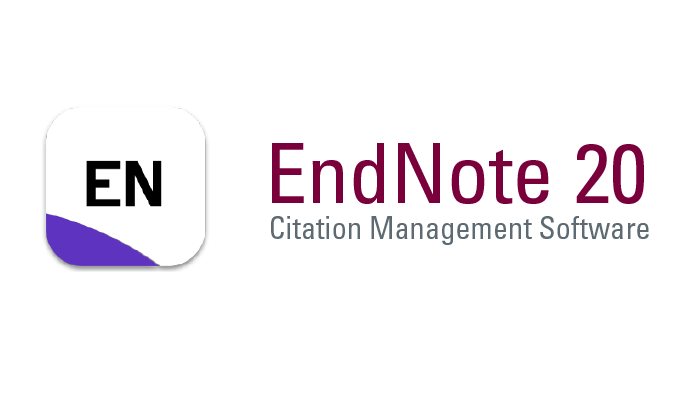PERAN PENDIDIKAN ISLAM DALAM PENGUATAN KARAKTER BANGSA DI ERA GLOBALISASI
DOI:
https://doi.org/10.47887/amd.v6i1.191Keywords:
Islamic Education, Character Strengthening, Globalization Era, Religious Value, National IdentityAbstract
The background This study investigates the contribution of Islamic education in the formation and strengthening of the character of the Indonesian nation amidst the rapid flow of globalization. The phenomenon of globalization has brought about important transformations in various dimensions of life, including shifts in socio-cultural values that influence the formation of community identity. As an integral component of the national education system, Islamic education has a great capacity to instill fundamental values that are in line with the nation's identity. Using a qualitative methodology based on literature review and content analysis, the study identified three main aspects of the contribution of Islamic education in strengthening the nation's character: the application of spiritual-moral values in the learning process, the development of character education rooted in religious values and local wisdom, and the strengthening of the function of Islamic educational institutions in building national identity. The research findings indicate that the contribution of Islamic education, especially in the fields of tarbiyah, ta'lim and ta'dib has the potential to be an effective means of filtering the negative impacts of globalization while remaining open to positive developments in the modern world. The application of moderate Islamic values combined with local wisdom and national spirit has the potential to create a generation with strong character, clear identity, and a global outlook.
References
Aeni, A. N. (2014). Pendidikan karakter untuk siswa SD dalam perspektif Islam. Mimbar Sekolah Dasar, 1(1), 50–58. DOI: https://doi.org/10.17509/mimbar-sd.v1i1.863
Al-Attas, S. M. N. (1980). The Concept of Education in Islam: A Framework for an Islamic Philosophy of Education. ISTAC.
Azra, A. (2005). Jaringan Ulama Timur Tengah dan Kepulauan Nusantara. Kencana.
Azra, A. (2012). Pendidikan Islam: Tradisi dan Modernisasi di Tengah Tantangan Milenium III. Kencana Prenada Media Group.
Baharuddin. (2014). Pendidikan Islam dan Isu-Isu Sosial. Kurnia Kalam Semesta.
Creswell, J. W. (2014). Research Design: Qualitative, Quantitative, and Mixed Methods Approaches. Sage Publications.
Daradjat, Z. (2013). Ilmu Pendidikan Islam. Bumi Aksara.
Daulay, H. P. (2014). Pendidikan Islam dalam Perspektif Filsafat. Kencana Prenada Media Group.
Fathurrohman, M. (2015). Paradigma Pembelajaran Kurikulum 2013: Strategi Alternatif Pembelajaran di Era Globa. Kalimedia.
Hasanah, A. (2017). Pendidikan Karakter Berbasis Islam. Insan Komunikasi.
Huntington, S. P. (1996). The Clash of Civilizations and the Remaking of World Order. Simon & Schuster.
Jalaluddin. (2016). Psikologi Agama: Memahami Perilaku dengan Mengaplikasikan Prinsip-Prinsip Psikologi. Raja Grafindo Persada.
Kementerian Agama. (2019). Implementasi Moderasi Beragama dalam Pendidikan Islam. Direktorat Pendidikan Islam.
Kementerian Pendidikan Nasional. (2010). Pengembangan Pendidikan Budaya dan Karakter Bangsa. Kementerian Pendidikan Nasional.
Lickona, T. (2013). Educating for Character: Mendidik untuk Membentuk Karakter. Bumi Aksara.
Lubis, M. (2016). Pengembangan Profesionalisme Guru Madrasah pada Abad 21. Alfabeta.
Mahfud, C. (2016). Pendidikan Multikultural. Pustaka Pelajar.
Majid, A., & Andayani, D. (2012). Pendidikan Karakter Perspektif Islam. Remaja Rosdakarya.
Muhaimin. (2011). Pendidikan Islam dalam Konstelasi Sosial Politik di Indonesia. RajaGrafindo Persada.
Muhaimin. (2018). Paradigma Pendidikan Islam: Upaya Mengefektifkan Pendidikan Agama Islam di Sekolah. Remaja Rosdakarya.
Musrifah. (2018). Pendidikan Karakter dalam Perspektif Islam. Jurnal Edukasia Islamika, 3(2).
Nata, A. (2016). Ilmu Pendidikan Islam. Kencana Prenada Media Group.
Nizar, S. (2016). Sejarah Pendidikan Islam: Menelusuri Jejak Sejarah Pendidikan Era Rasulullah sampai Indonesia. Kencana.
Raharjo, S. B. (2010). Pendidikan Karakter Sebagai Upaya Menciptakan Akhlak Mulia. Jurnal Pendidikan Dan Kebudayaan, 16(3), 229–238. https://doi.org/10.24832/jpnk.v16i3.456 DOI: https://doi.org/10.24832/jpnk.v16i3.456
Rahim, H. (2013). Pendidikan Islam dalam Pembentukan Karakter Bangsa. PT Raja Grafindo Persada.
Saeed, A. (2016). Interpreting the Qur’an: Towards a Contemporary Approach. Routledge.
Saifuddin, L. H. (2018). Moderasi Beragama. Kementerian Agama RI.
Shihab, M. Q. (2016). Membumikan Al-Qur’an. Mizan.
Shihab, M. Q. (2019). Wasathiyyah: Wawasan Islam tentang Moderasi Beragama. Lentera Hati.
Sugiyono. (2018). Metode Penelitian Kualitatif. Alfabeta.
Sulaiman, A. (2018). Strategi Pengembangan Pendidikan Agama Islam pada Era Globalisasi. Jurnal At-Tafkir, 11(1). DOI: https://doi.org/10.26618/jtw.v1i1.347
Sutrisno. (2017). Pendidikan Islam yang Mensejahterakan: Upaya Integrasi Antara Nilai Islam dan Pendidikan Karakter. Jurnal Pendidikan Agama Islam, 14(1).
Tafsir, A. (2012). Ilmu Pendidikan Islam. PT. Remaja Rosdakarya.
Tilaar, H. A. R. (2012). Perubahan Sosial dan Pendidikan: Pengantar Pedagogik Transformatif untuk Indonesia. Rineka Cipta.
Undang-Undang Nomor 20 Tahun 2003 Tentang Sistem Pendidikan Nasional.
Yaumi, M. (2011). Integrasi Teknologi Informasi Dan Komunikasi Dalam Pembelajaran. Lentera Pendidikan : Jurnal Ilmu Tarbiyah Dan Keguruan, 14(1), 88–102. https://doi.org/10.24252/lp.2011v14n1a6 DOI: https://doi.org/10.24252/lp.2011v14n1a6
Zubaedi. (2015). Desain Pendidikan Karakter: Konsepsi dan Aplikasinya dalam Lembaga Pendidikan. Kencana Prenada Media Group.
Zuhairini. (1995). Filsafat Pendidikan Islam. Jakarta: Bumi Aksara.
Downloads
Published
How to Cite
Issue
Section
License
Copyright (c) 2025 Sulaiman Sulaiman

This work is licensed under a Creative Commons Attribution-ShareAlike 4.0 International License.
Authors retain copyright and grant the journal right of first publication and this work is licensed under a Creative Commons Attribution-ShareAlike 4.0 that allows others to share the work with an acknowledgement of the works authorship and initial publication in this journal.
All articles in this journal may be disseminated by listing valid sources and the title of the article should not be omitted. The content of the article is liable to the author.
Authors are able to enter into separate, additional contractual arrangements for the non-exclusive distribution of the journal's published version of the work (e.g., post it to an institutional repository or publish it in a book), with an acknowledgment of its initial publication in this journal.
Authors are permitted and encouraged to post their work online (e.g., in institutional repositories or on their website) prior to and during the submission process, as it can lead to productive exchanges, as well as earlier and greater citation of published work.
In the dissemination of articles by the author must declare the Al-Madaris Jurnal Pendidikan dan Studi Keislaman as the first party to publish the article.














